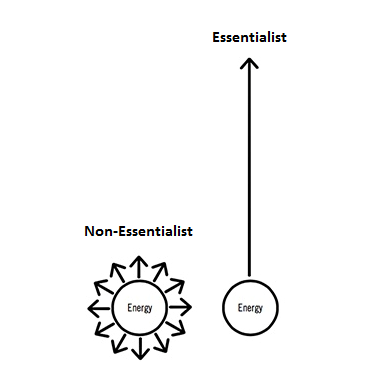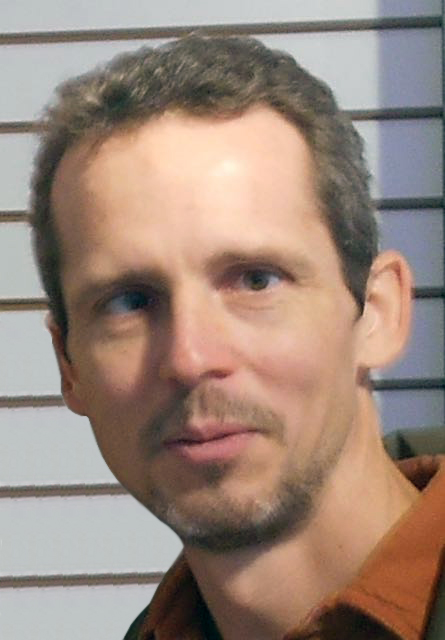
Trying to decipher Ontario’s complex “stay-at-home” orders feels like filing a tax return. Both, I guess, are trying to make something inherently unfair, appear fair.
Notwithstanding, out of everything our premier-dictator, Doug Ford, has dictated I do agree with this one point (quoted by CTV News):
[The government] cannot determine what is essential for every person in this province, each with their own unique circumstances…
No kidding! It’s not your job and you need to stop trying. It looks like it’s burning you out. Everytime I see one of your press conferences, you look like you’ve just finished a round of electroshock therapy…

(And, by the way, why does it take five politicians to give one boilerplate speech we’ve heard already a dozen times? If there’s really a pandemic going on, don’t these people have more “essential business” to attend to then standing in the distance wearing creepy and ineffective masks.)
Nonetheless, to only do what is essential is wise counsel. I’ll give him that. As Greg McKeown, author of Essentialism: The Disciplined Art of Doing Less, writes:
By applying a more selective criteria for what is essential, the pursuit of less allows us to regain control of our own choices so we can channel our time, energy and effort into making the highest possible contribution toward the goals and activities that matter.
I need to keep reminding myself of this essential truth as I try to make my “highest possible contribution” towards a world of greater freedom, not enslavement. Yet, as I wrote about in The ONE Thing You Can Do To Stop the Nutty New Normal, it’s easy to wear myself thin.
For example, I’ve been writing daily 500-word articles for over nine months, creating and distributing flyers, answering emails, being interviewed and interviewing others — all while trying to write a full length novel (and take care of my wife and son, earn money, get sleep, and run 7km a day). The following illustration from McKeown’s book sums up how I feel about this multi-faceted approach:

While I may not be split in as many directions, I still regret having diversified as much as I have. If I could go back in time, I’d have spent less time writing articles and more time on the novel.
I simply had no idea how much work the novel would be.
When I started writing Much Ado About Corona, it was to be a short story. The short story became a 30,000-word novella. The novella became a 90,000-word novel.
So I planned on releasing the novel in two parts. Each part being about 45,000 words. Last fall, I focused on revising part one. Well, part one has expanded from 45k into a 80,000-word novel all by itself:

Hence, why it has not been released yet. With each revision my muse left me no alternative but to include new scenes, characters and subplots. While I have cut and burned thousand of words, I’ve also added many more back. I’m well past three hundred hours of work and there is at least another hundred to go.
Artist Jordan Henderson, under commission to produce a cover for the novel, has read up to chapter seventeen of the current draft. Here’s what he emailed me:
I think what you are doing is going to put you at the cutting edge of modern literature; not fakey, establishment funded, post modern, Avant-garde, garbage, but the actual cutting edge of genuinely creative and highly relevant writing.
So it’s coming out well (based on the cover artist’s naturally biased review); but very slowly. Whether I’m an exceptionally slow writer, I don’t know. I’ve heard best selling novelists say it takes 500 hours of writing and rewriting for them to finish a novel.
I also wrote the first draft by hand. A pencil is not as fast a keyboard, but seems to stimulate the brain in ways typing cannot…

Now, coming back to “essential business,” I had a revelation late last year after reading an article by James Corbett. In it he referred to me as “an independent Canadian journalist fighting the mainstream COVID narrative.” While I felt honoured to receive such an acknowledgement, it made me reflect:
Journalist? But I’m trying to be a novelist.
So why, then, am I acting like a journalist?
Because I’m suffering from the delusion I can do both. As McKeown says in Essentialism, “You can do anything; but you can’t do everything.”
Writing a novel takes a year of work. At least a good novel. I’m sure there are exceptions, but mine is not one of them. It’s a big gamble. I hope Much Ado About Corona will help awaken the masses; but it may just awaken the critics. Only five people might buy it and leave seven bad reviews on Amazon. Or it may sell millions of copies, in seventy-two languages, not only changing the course of this “great reset” but also funding and promoting other efforts to derail similar agendas.
But it won’t do much until it is published. And it won’t be published until it is done. So, in order to get it done ASAP, I realized I had to dramatically reduce my journalistic and activist activities.
As Stephen King writes in On Writing:
…there is Harper Lee, who wrote only one book (the brilliant To Kill a Mockingbird)…. Which is okay, but I always wonder two things about these folks: how long did it take them to write the books they did write, and what did they do the rest of their time? Knit afghans? Organize church bazaars? Deify plums? I’m probably being snooty here, but I am also, believe me, honestly curious. If God gives you something you can do, why in God’s name wouldn’t you do it?
So, from now on (I know, I’ve said this before), I’ll only be producing one article, flyer or interview each week — based on research I need for the novel. (Last week’s article, for example, uses material that formed much of chapter 12.) Unlike back when I started speaking out against the corona deception, today, you can drown yourself in well-written articles and videocasts exposing the hoax via these fine websites.
The world doesn’t need another journalist exposing the deception as much as it needs a novelist narrating a counter-story. Much Ado About Corona uses a fiction story based on facts to counter the fictional COVID narrative based on lies. Fighting fiction with fiction.
And, to help keep me focused, I’ll post these “making of” updates frequently (be sure to subscribe). I’ll share with you my progress, some excerpts, creative lessons learned, maps, brainstorms and other behind-the-scenes stories and photos — as I race towards finishing this full-length novel about true love and a fake pandemic.
I know I can write articles that get published on sites all over the world. But can I write a novel that will be read all over the world? All I know is that when I’m working on Much Ado About Corona, I feel peace and purpose. Every revision becomes better than the last. Even though my mind tells me a thousand reasons why an introvert like me has no business writing a “dystopian love story;” my heart reminds me of these words from The Bhagavad Gita:
It is better to do one’s own dharma, even though imperfectly, than to do another’s dharma, even though perfectly.
Dharma is a Sanskrit word for your “essential business” here on earth. We each have a part to play in shaping a free and just world. Whether that’s homeschooling your kids, joining a local rally, opening your business, running for mayor, painting a masterpiece or writing a novel — if we do our dharma, our essential business, our one thing, the future can’t help but get better.

 About the Author: John C. A. Manley is the author of the full-length novel, Much Ado About Corona: Dystopian Love Story. He is currently working on the sequel, Brave New Normal, while living in Stratford Ontario, with his wife Nicole and son Jonah. You can
About the Author: John C. A. Manley is the author of the full-length novel, Much Ado About Corona: Dystopian Love Story. He is currently working on the sequel, Brave New Normal, while living in Stratford Ontario, with his wife Nicole and son Jonah. You can 